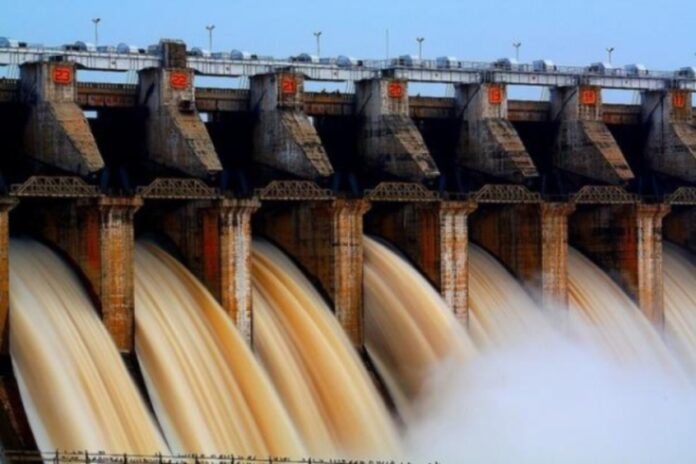Farmers and communities living along the White Volta River basin are bracing for the annual spillage of the Bagre and Kompienga Dams in Burkina Faso, which is now scheduled to begin on Monday, August 25, 2025.
The announcement, which came at short notice, has heightened fear and anxiety among residents, many of whom worry about the destruction of their crops, farmlands, and livelihoods.
Mr. Samuel Azure, a peasant farmer in the Binduri District, lamented the short notice, saying: “The notice is too short. We received the information only a few days ago. Initially, the spillage was scheduled for August 27, but suddenly the date was changed to August 25, and we got the information just last Saturday.”
Many farmers are yet to complete harvesting, raising concerns about severe losses.
“Most of our farmers who planted maize and naara (early millet) are going to be adversely affected because they have not finished harvesting. If the destruction is severe, which we anticipate since our rivers are already full from recent rains, it could pose food insecurity to many families,” Mr. Azure added.
SONABEL, the Burkinabé power producer and manager of the dams, explained that the spillage was brought forward due to a rapid rise in water levels. As of Saturday, August 23, the Bagre Dam had reached 90.24% of its capacity at 234.27 metres—just 0.73 metres below its maximum retention level. The Kompienga Dam stood at 79.36% capacity at 177.90 metres, about 2.10 metres below its maximum retention level.
Over the years, the annual spillage has caused extensive flooding in parts of Ghana’s Upper East and North East Regions, leading to loss of lives, destruction of farms, damage to property, and displacement of families. Rice, maize, millet, and vegetable farmers along the White Volta are often the most severely affected.
Mr. Jesse Kazapoe, Head of the White Volta Basin at the Water Resources Commission, urged residents to move to safer grounds. “We have sent out information, educating the farmers to move to high grounds so we can prevent loss of lives, but we cannot guarantee that food crops will not be lost since some farmers are still harvesting,” he said.
Mr. Isaac Pabia, Upper East Regional Focal Person and National Secretary of the Peasant Farmers Association of Ghana (PFAG), said the situation was unacceptable, calling for stricter enforcement of buffer zones to prevent farming too close to riverbanks.
Mr. Christopher Beokena, Upper East Regional Deputy Director of NADMO in charge of Administration, noted that district officers had been directed to sensitise farmers on safety measures. “As we speak, some farmers have started harvesting even though some of their crops are not mature, and we will be monitoring the issue and providing assistance,” he said.
Source: GNA
ALSO READ:


